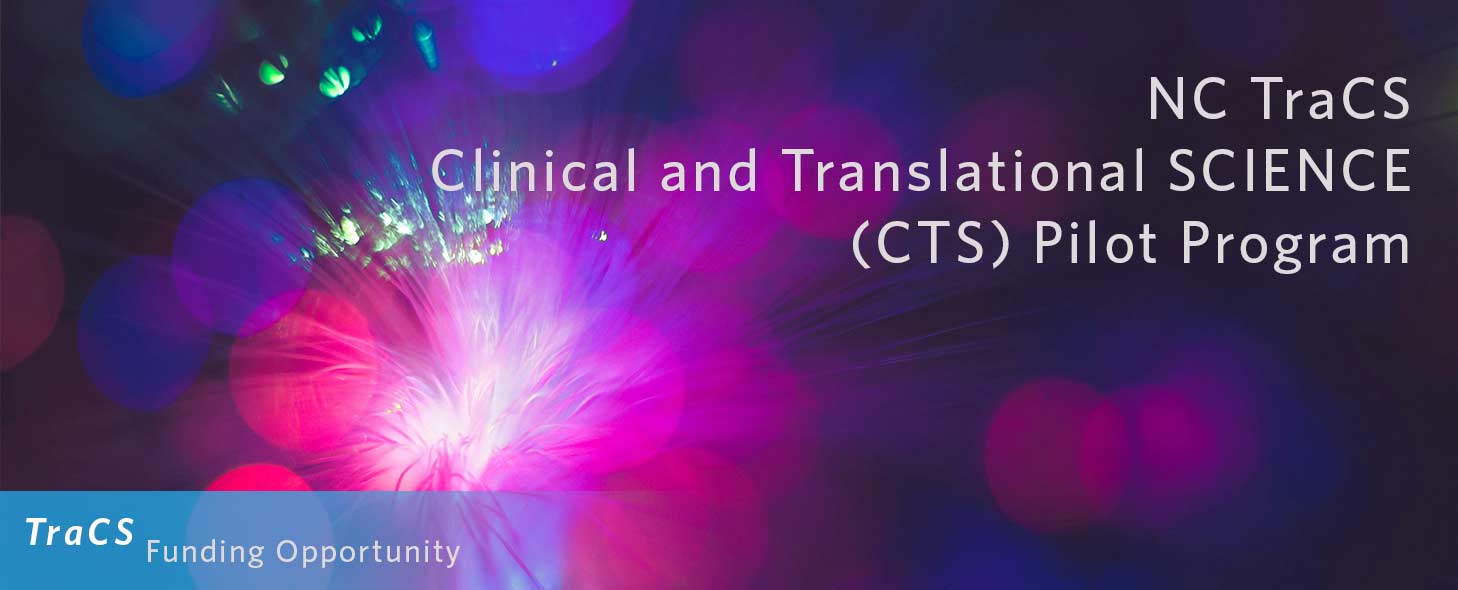TraCS CTS pilot award winners announced

The TraCS Clinical and Translational Science (CTS) pilot award program supports the field of investigation focused on understanding the scientific and operational principles underlying each step of the translational process.
Projects are intended to:
- explore innovative new leads, or new directions for established investigators;
- stimulate investigators from other areas to lend their expertise in research in CTS; and
- provide initial support to establish proof of concept.
More about translational science and the award process »
The following projects have recently been awarded funding and began their award period on April 1, 2025:
✓ Bronchoalveolar Lavage Fluid-Derived Organoids as Translational Models for Pediatric Respiratory Disease
PI: James Hagood, MD (Professor, Pediatrics, School of Medicine)
Impact statement: "Few reports establish organoid models for pediatric lung disorders. Bronchoalveolar lavage fluid-derived organoids offer a novel, less invasive approach to creating disease-specific models. This could revolutionize personalized medicine, drug screening, and treatment development."
✓ Affect-based impulsivity in borderline personality disorder (BPD): developing a neurocomputational phenotype
PI: Michael Hallquist, PhD (Associate Professor, Psychology & Neuroscience, College of Arts & Sciences)
Impact statement: "Current treatments for BPD show moderate, but unstable effects and require long-term treatment. Extending on insights from addiction and anxiety research, we will interrogate similar neurocomputational circuits in BPD. The work has significant potential to inform treatment targets in BPD."
✓ New strategies to circumvent humoral immunity to adeno-associated virus (AAV) in gene therapy
PI: Zongchao Han, PhD, MD (Associate Professor, Ophthalmology, School of Medicine)
Impact statement: Adeno-associated virus (AAV) is a promising gene therapy platform, but current strategies fall short clinically. This team's advanced AAV delivery system overcomes these limitations, enabling effective treatment for retinal diseases like age-related macular degeneration (AMD), and paving the way for meaningful therapeutic outcomes in various other conditions."
✓ Treating peanut allergy using modifiable nanoparticles
PI: Michael Kulis, PhD (Associate Professor, Pediatric Immunology, School of Medicine)
Impact statement: This research aims to develop a targeted therapy for peanut allergy that induces long-term systemic tolerance by deleting PN-specific B cells and promoting T-regulatory cells. If successful, it could surpass current treatments and significantly improve the quality of life for affected individuals."
✓ Exploring the Utility of Linked Patient Portal Message Data for Translational Science
PIs: Joshua Niznik, PharmD, PhD (Assistant Professor, Medicine, School of Medicine) and
Anna Kahkoska, MD, PhD (Assistant Professor, Nutrition, Gillings School of Global Public Health)
Impact statement: "The proposed study will leverage a novel data source with great potential to advance the science of clinical research using real-world data by developing methodological tools to repurpose patient portal messaging data for research and generating novel insights into portal user activity."
✓ Measuring patient data density: Developing and applying metrics to accurately define cohorts and identify bias
PIs: Emily Pfaff, PhD, MS (Assistant Professor, Medicine, School of Medicine) and
Michelle Hernandez, MD (Professor, Pediatrics, School of Medicine)
Impact statement: "The team proposes to create quantitative metrics to measure Electronic Health Record (EHR) data density. These metrics will offer researchers the tools to identify and remediate demographic and social biases introduced when selecting cohorts and engaging in data-driven clinical research."
Now accepting applications for Cycle 5
We are currently seeking proposals for Cycle 5 that focus on understanding a scientific or operational principle underlying a step of the translational research process, with the goal of developing generalizable principles to accelerate translation.
Submissions due: July 8, 2025.
Learn more about this opportunity at tracs.unc.edu/services/pilot-program/cts
Questions regarding applicant eligibility may be directed by email to This email address is being protected from spambots. You need JavaScript enabled to view it., Director, TraCS Innovations Program.